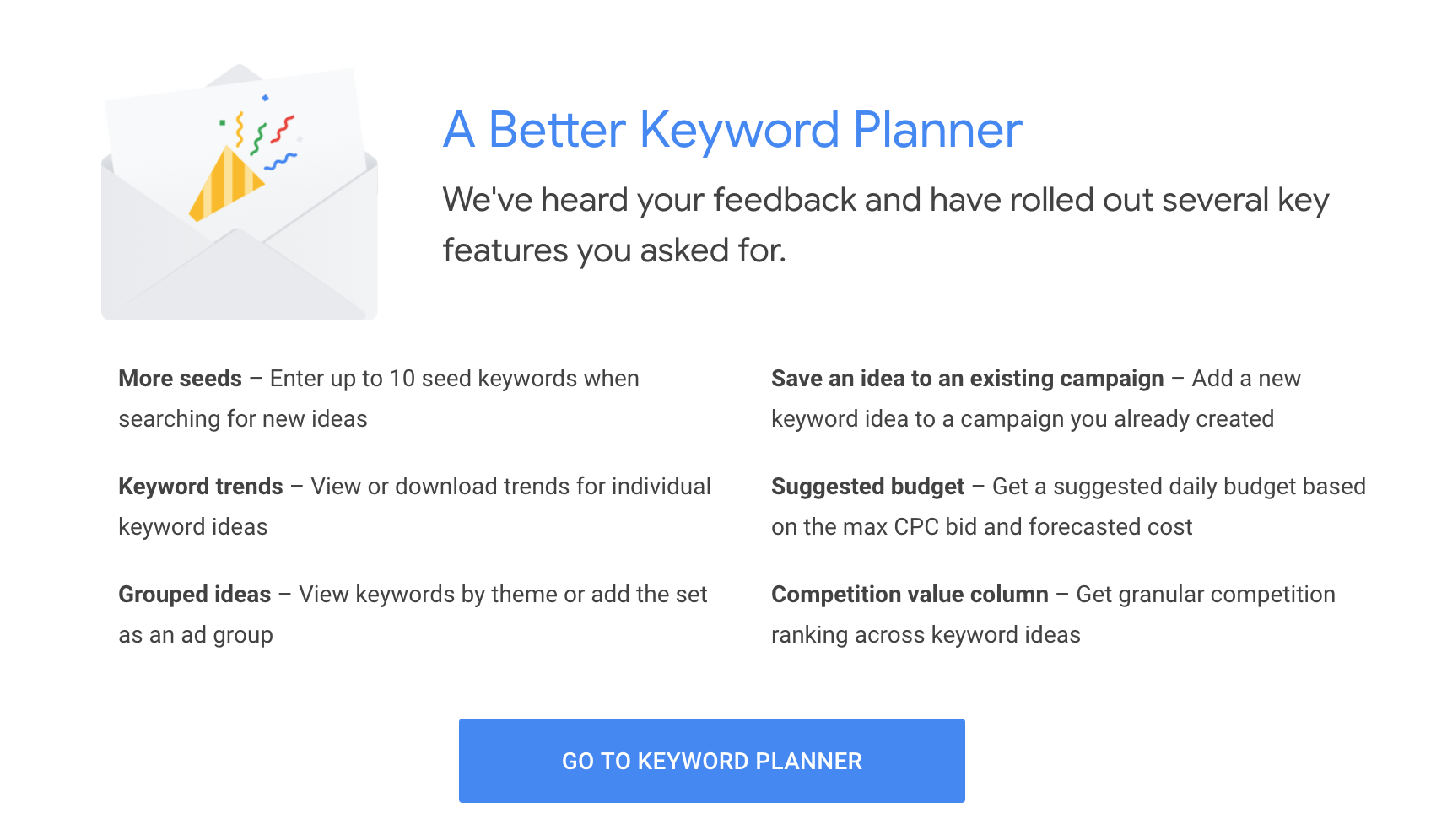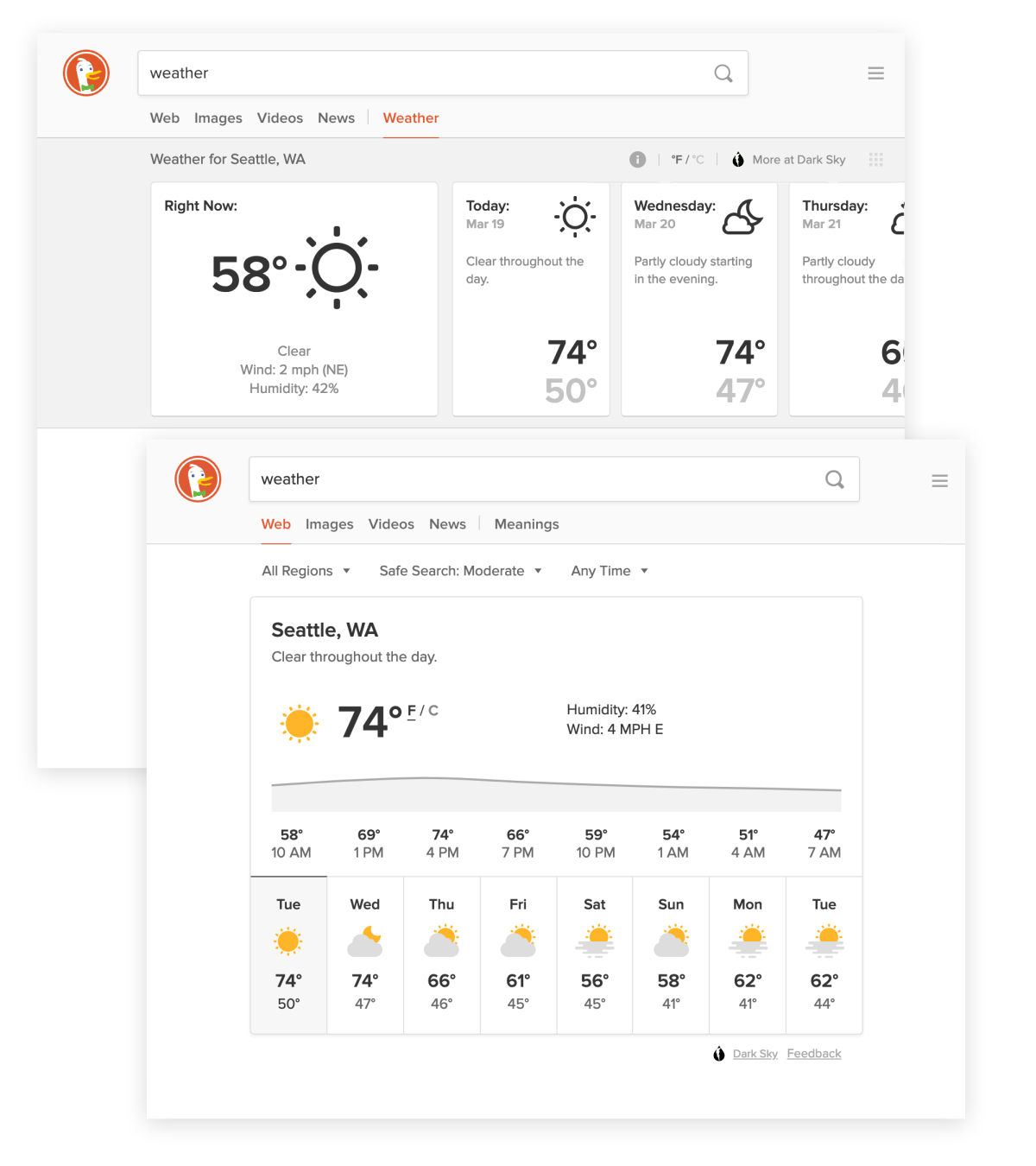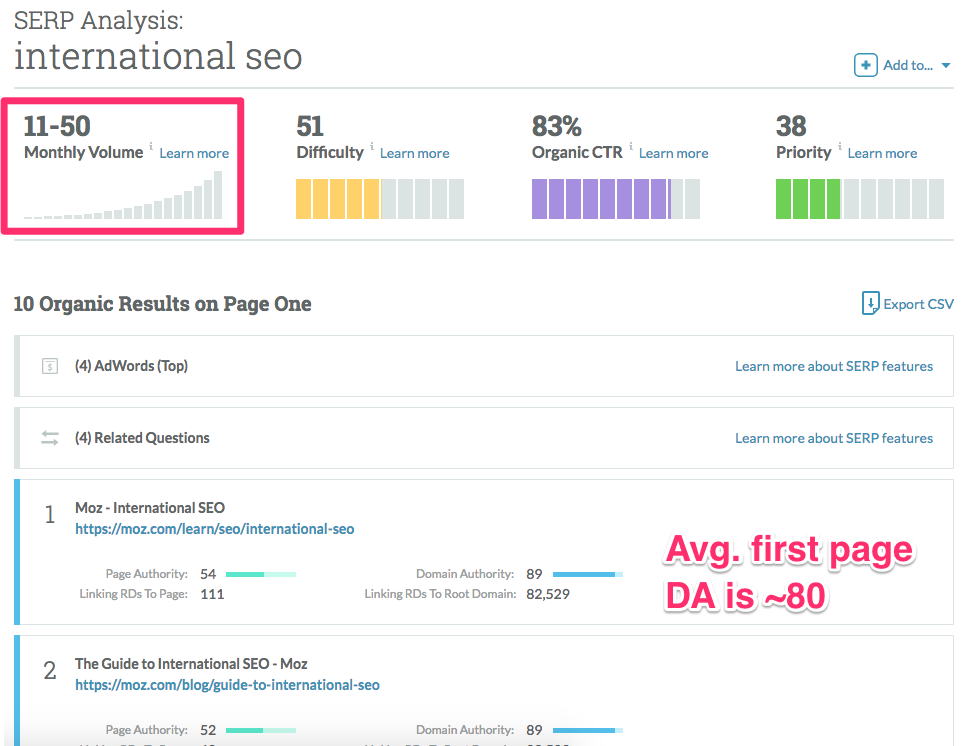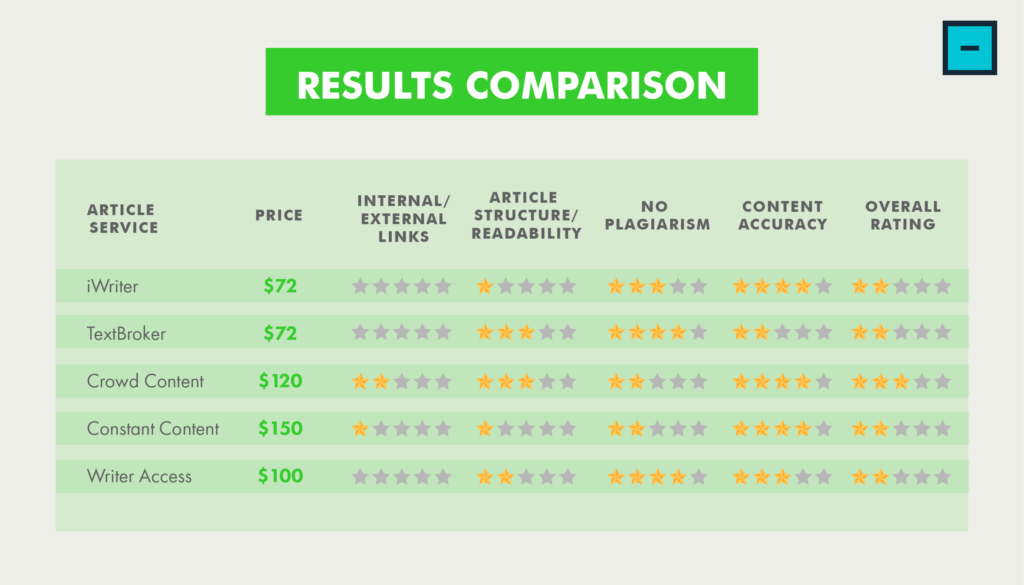|
https://ift.tt/2V7EbQB
Google Ads Keyword Planner Now Allows Up to 10 Seed Keywords by @MattGSouthern https://ift.tt/2JUMOgh Google Ads Keyword Planner has been updated with the ability to process up to 10 seed keywords when searching for new ideas. That’s one of several new features in the latest update, which is designed to address common user requests. Entering more seed keywords per search should allow users to discover a greater number of keyword opportunities. More seed keywords may even result in more relevant keyword ideas as well. Other New Features in Keyword PlannerThe next time you log in to Keyword Planner you’ll be greeted with an alert notifying you of several new features.  As someone who regularly uses this tool for keyword research, I think one of the most useful new features will end up being the monthly keyword trends reports. You can now see trends for individual keyword ideas by hovering over the chart in the ideas table. Previously, it was not as easy to view historical keyword data while searching for new keyword ideas. I reached out for feedback from other SEOs who have had an opportunity to use the new features to see what they like so far. Amy Bishop responded with thoughts on a few different aspects of the update. On the 10 seed keywords:
On grouped ideas:
On adding to existing campaigns:
There’s a lot to dig into with this update, and the feedback is all pretty positive so far. SEO via Search Engine Journal https://ift.tt/1QNKwvh March 31, 2019 at 10:29PM
0 Comments
https://ift.tt/2U7wWeU
Google Ads Editor Introduces Full Cross-Account Management by @MattGSouthern https://ift.tt/2U96e5I  Google has officially launched Google Ads Editor version 1, which now offers full cross-account management. This is the first major update of Editor to be released since Google AdWords was rebranded as Google Ads. Google has been waiting to announce the Google Ads brand on an Editor release until it was able to incorporate long-standing community requests in a significant update. Here’s what’s new in Google Ad Editor v1. New Features in Google Ads EditorGoogle has updated Editor with full cross-account management. Previously, campaign managers could only make changes in the Editor UI for a single account. Editor can now be used seamlessly across your Google Ads accounts from a single window.
Google has also improved the overall design and usability of Editor with a new interface that will help users execute tasks more quickly. According to community feedback, users were having a difficult time remembering where each setting was in Google Ads Editor. Google addressed this problem by creating a right-hand Edit panel to improve users’ ability to scan. There is also a new search function to help people find what they need even faster. In addition, the following new features are now available in Google Ads Editor:
SEO via Search Engine Journal https://ift.tt/1QNKwvh March 31, 2019 at 05:00PM
https://ift.tt/2I3MYPQ
DuckDuckGo Upgrades Search Results for Weather Forecasts by @MattGSouthern https://ift.tt/2FDqqlV DuckDuckGo has introduced enhanced search results for weather-related queries. The new weather format in DuckDuckGo provides more detailed information and clearer images. Weather answers are still powered by Dark Sky. Results for weather searches are also interactive, showing hourly data by clicking on each day of the week, and instant toggling of Fahrenheit and Celsius. Here is a before and after comparison:  In true DuckDuckGo fashion, the company also emphasizes the privacy benefits it offers compared to other search engines.
DuckDuckGo handles weather searches for each individual user by inferring an approximate location from the information automatically sent by the browser. Information about a user’s approximate search location is immediately discarded without being stored. SEO via Search Engine Journal https://ift.tt/1QNKwvh March 31, 2019 at 04:19PM
https://ift.tt/2FLJqzY
Facebook’s Faulty SMS Two-Factor Authentication is Locking Out An Alarming Number of Users by @MattGSouthern https://ift.tt/2uEFzyy  An issue with Facebook’s SMS two-factor authentication is keeping a significant number of users locked out of their accounts. The problem is users are not receiving text messages from Facebook which they need to verify ownership of their accounts. Joe Youngblood, one of many users currently locked out, has been documenting the process of trying to regain access to his account. He’s going on over 15 days of not being able to log in to Facebook:
Despite many attempts of reaching out to Facebook about this issue, he has not received any help. As mentioned, he’s not alone. With a quick search for “Facebook SMS” on Twitter you can find many other users locked out of their account for the same reason. The faulty SMS two-factor authentication problem appears to be severely underreported even though it’s impacting users worldwide. In an effort to raise awareness of the problem, Youngblood created the Twitter account @FacebookSMS2FA which contains a growing collection of retweets from users who are locked out of their accounts. This problem could be especially detrimental for people who rely on Facebook to run their business. For what it’s worth, Youngblood has a long-term history of buying Facebook ads, and that has not seemed to make a difference with regaining access to his account. What’s also notable about this issue is that Facebook was in the news earlier this month for allowing users to be found using the phone number provided for two-factor authentication. So not only is Facebook misusing users’ phone numbers, but it’s not even living up to its end of the deal by providing secure and reliable two-factor authentication. With more users speaking up about the problem, will Facebook finally do something to correct it? We’ll have to wait and see. SEO via Search Engine Journal https://ift.tt/1QNKwvh March 31, 2019 at 02:49PM
https://ift.tt/2OzYjIC
4 Reasons Why Website Migrations Fail & How to Overcome Them by @Stevenvvessum https://ift.tt/2Ul1yZv  I’m sure you know by now that website migrations can be really tricky. They cause sweaty palms for many an SEO. I’ve managed 50+ website migrations myself, and I’ve been involved in some capacity in hundreds of them. I try to learn from every website migration to see how the next one can be done even better. I zoom in on:
In aviation there’s this golden rule that every plane crash should lead to a change to keep it from happening again. When we’re talking about changes, think about changes to the way that planes are constructed or to maintenance processes. While this may seem extreme, it’s the right mindset. That’s why I’ve adopted the same paradigm for website migrations. Lives may not be at risk, but businesses certainly are. I went through my notes on website migrations and discovered that most website migrations fail for four reasons. This post will walk you through those mistakes and describe how you can overcome them. This article is written for the people who manage website migrations, be that SEO professionals, digital marketers, or project managers. 1. Poor PlanningSuccessful website migrations are planned well and executed with military precision. Planning starts as early as possible, ideally when the idea of migrating the website is first entertained. You’re going to need all the time you can get to:
Scoping the website migration and identifying the goals for the migration is really important too, because otherwise how are you going to evaluate how it went? One of the most common problems happening in website migrations is SEO professionals getting involved in the process way too late. When that happens, pull the handbrake. Your odds of making the website migration a success aren’t looking good; if you don’t take the time to properly plan the migration, you’re just setting yourself up for failure. Make sure that you, and perhaps a few of your colleagues who are part of the core website migration team, have the final say in whether you decide to proceed with the migration, or instead postpone it because you need more time. Choosing to move ahead with the migration should not be an executive decision. 2. A Lack of Awareness of the Risks Involved in Website MigrationsIt’s essential that everyone involved in the website migration is acutely aware of the risks involved. In SEO, there are no guarantees. If you rock the boat with a migration, there’s always a chance things will go wrong and you won’t regain your old rankings. Search engines don’t owe you anything – not even an explanation. Address this by holding a training session wherein you explain the website migration’s risks to everyone involved. Make it visual and bring the inherent risks to life by presenting website migration case studies. Include visibility charts, and show them the good, the bad, and the ugly. And then some more ugly to make sure your message is received. I say “involve everyone,” but who’s that? Consider people in the following roles (but potentially also others):
3. A Lack of Knowledge by the Parties InvolvedSo now that you’ve ensured everyone involved is aware of the risks, schedule SEO training sessions for everyone who’s going to be directly involved in the website migration. Explain the basics of SEO and highlight particular aspects that are especially important when it comes to website migrations, such as:
Website migrations that went sour should definitely be included in these training sessions, including charts showing the drop in visibility. Schedule a separate, more high-level, training session for the decision makers involved. They don’t need to hear about the nuts and bolts of website migrations, but they do need to know:
4. A Weak Migration ChecklistEven if you’ve planned and educated everyone on the risks involved in website migrations well, you can still fail at them horribly. You may have a weak migration checklist. Essential checks may be missing, or your checklist may be insufficiently thorough. Your migration checklist needs to contain both pre-launch and post-launch checks. Plan enough time to draft a complete and thorough migration checklist. Things to pay special attention to are:
There are many more checks to think of. For more inspiration, check out these migration guides: A Note on Laying Blame When Website Migrations FailIt’s popular among SEO professionals to complain about other people involved in the website migration not having done their part or lived up to expectations when a migration fails. But in cases like this, there’s never just one person to blame. If a developer thought it was fine to start the migration process early without a redirect plan in place, whose fault is that, really? Isn’t it your job to educate him or her about the importance of redirect plans and the SEO risks involved in website migrations? If the management team wants to go through with the website migration even though you’re 100 percent sure it’ll crash and burn, who’s really at fault here? Did you do enough to convince the management team of the risks involved? Better yet, think about these “education risks” rights away and avoid the failure! Your Next Website MigrationYou can’t make an omelet without breaking a few eggs. Hopefully, this article helps you do better on your next website migration. More Resources: SEO via Search Engine Journal https://ift.tt/1QNKwvh March 31, 2019 at 07:57AM
https://ift.tt/2V2BGPq
How to stop underspending your free ad grant budget with a script https://ift.tt/2FBUpL9  If you’re running a Grant account on Google Ads, you get a free budget of $10,000 a month to work with. So how do you make sure you’re actually using all of that free money? Naturally, you want to use your budget in its entirety every day. But you also want to make sure that budget goes to efficient keywords, so that it’s not wasted on mediocre keywords and runs out at midday. Manually, that’s a bit of a balancing act between hitting budget and using highly performing keywords. This script should do the trick! How does it work?This script emulates standard delivery, but allows you to turn certain keywords on or off depending on whether you’re on track to hit your budget. You start each day with your most efficient keywords enabled. The script then checks your pacing and sees whether you’re on track to spend your daily budget based on a percentage set by you. If you’re on track to use your $329, it doesn’t do anything. Good job! If it thinks you’re not on track, it activates a labelled group of less efficient keywords in order to help you avoid underspending and missing out on potential traffic. And if you then start overspending by a certain amount, it will pause those keywords again for you. How to get startedCopy the script below and paste it in the scripts section of Google Ads. Before running it, remember to label your inefficient keywords so your script can recognise them, using extraKeywordsLabel to set your desired label. You can update the tolerance variable to set the proportion above or below budget the account should be before the extra keywords are enabled or paused. For example, setting it to 0.05 allows the account to be 5% above or below budget without changes being made. You can also change your budget variable with monthlyBudget. With hourlyTargets, you can set the proportion of the budget that should have been cumulatively spent by the end of each hour. Finally, use emails if you want to be notified about changes made. Opinions expressed in this article are those of the guest author and not necessarily Search Engine Land. Staff authors are listed here. About The AuthorDaniel Gilbert is the CEO at Brainlabs, the best paid media agency in the world (self-declared). He has started and invested in a number of big data and technology startups since leaving Google in 2010. SEO via Search Engine Land https://ift.tt/1BDlNnc March 29, 2019 at 11:24AM
https://ift.tt/2I09RUj
Google Expands Travel Searches to Include Vacation Rental Properties by @MattGSouthern https://ift.tt/2WvkF0D Google is expanding hotel search results to include a greater number of vacation rental properties. Using Google’s mobile search results, users can see and book vacation rentals from the following travel partners:

Search results can be filtered by price and amenities. Just like searching for hotels, users can browse photos of rental properties and read reviews. After selecting a check-in and check-out date, users can click “Book” to complete the reservation on the travel partner’s website.  This feature is currently only available on mobile but will be brought to desktop search next month. SEO via Search Engine Journal https://ift.tt/1QNKwvh March 29, 2019 at 10:49AM
https://ift.tt/2uBkAMO
Google Makes Podcasts Searchable by Automatically Transcribing Them by @MattGSouthern https://ift.tt/2V5bTpJ  Google Podcasts is making it possible to search for episodes based on what was discussed in a show. According to Android Police, Google Podcasts is automatically transcribing dialogue and using it as metadata. So users can search for specific episodes even if they can’t remember the name of the podcast. Android Police discovered that transcripts are being logged in the page source of episode web pages on the Google Podcasts web portal. It has been confirmed you can search for text in the transcript using the Google Podcasts app and find the right episode. Transcripts cover the entire show, however, they’re not perfect. Since they’re automatically generated there are bound to be some mistakes. For example, the name “Corbin Davenport” was transcribed as “Corbin dabbing port.” Android Police also notes that transcripts are not being generated for all episodes. Although when they are generated it greatly improves the discoverability of the episode. Google has been planning this since last yearLast August, we reported on an interview Zach Reneau-Wedeen of Google’s podcast team in which he announced plans to make audio content more searchable. It would appear we’re now seeing the first signs of Google’s plan coming to light. This has the potential to help more podcasts get found by new listeners. It can also help podcasts get found by lapsed listeners. If a former listener remembers a line of dialogue but doesn’t remember what podcast it was from, they may be able to find the exact episode thanks to these transcripts. There’s much Google could do with podcasts transcripts in the future, such as publishing them on the web and making them even more searchable. SEO via Search Engine Journal https://ift.tt/1QNKwvh March 29, 2019 at 10:49AM
https://ift.tt/2uAGDmW
Don’t Invest in Content Unless You Can Be #1 – Here’s Why by @bsmarketer https://ift.tt/2HZiZbJ This ain’t 2005. This ain’t “everyone should be blogging.” This ain’t “but blogging is free!” Overall, the content space is still pretty immature. Not as professional or organized or cut-throat competitive as SEO or Google Ads. But that doesn’t mean it’s getting any easier, either. ‘Cause it ain’t. In fact, it’s rapidly doing the opposite, getting harder and harder and harder every single passing year. So much so, that it almost doesn’t make sense to even bother with content marketing unless you can be the best of the best. Here’s why. How the ‘Rich Get Richer’ on GoogleMore people scroll today than ever before. That should, in theory, mean around-the-fold ranking positions should get more clicks. SERP CTRs should be distributed more evenly. Except, that’s still not really the case. The first five positions still get pretty much all of the action – as much as 90 percent according to some studies. That leaves a paltry ~5 percent or less for everyone else outside the top five. Mobile, unfortunately, is even worse. SparkToro’s research shows that paid CTR has actually grown while organic’s has continued to decline. Buckle up, because the future’s about to become a lot bleaker. Just a few years ago, BuzzSumo partnered with Moz to perform a study that found “75 percent of blog posts receive fewer than 10 shares and zero links.” There are a few reasons for this, including two big ones: In other words, as competition and quantity grow, your odds of sticking out become less and less. Except, the quality bar is also rising substantially, too. Pick any top of the funnel marketing topic to instantly see this in play. Take “international SEO.”
 Question: Should you try to write a long-tail blog post about “international SEO”? Answer: Hell no! Not based on this at least. Because you’re not just competing against the competition anymore, but also Google themselves. They’re  These instant results are so effective… “How effective are they?” … they’re so effective, that 40 percent of searches end without a single click according to one study. Zero-Result SERPs are actually becoming a thing. None of this suggests SEO or content is becoming less important. The opposite is true in fact. The problem is that the stakes today are different. So the way you go about it needs to be different, too. Stop pumping out a bunch of mediocre content like it’s 2005, and start doing this instead. Quality Over Quantity: Why Doing Less (But Making It Better) Is a Better Predictor of Success TodayLast year, we ran a case study on content quality. We purchased five articles on the same topic from five different content creation platforms.  Beyond just length, we analyzed them based on ranking factors and best practices, like a proper heading hierarchy, internal and external links, visuals, basic grammar, and plagiarism. Then, we asked over a dozen industry experts to weigh in on whether they would publish each article or not. Each expert runs one of the most successful sites in their space, known primarily for their content quality. Let’s just say the results weren’t pretty. ❌ Three out of five services copied (borderline plagiarized) points from the content already ranking for that query. ❌ Three out of five services also lacked any internal or external links. None include images. ❌ Of the 12 experts, only one said they’d consider publishing one of the articles (and that was only after some changes). The average price for all of the articles was around $100/each. And that’s exactly part of the problem. Because ‘good’ content isn’t ‘good enough’ today when you compare it to the trends playing out on today’s SERPs. Orbit Media’s annual blogging survey proves this point. There’s a gulf between what (a) most bloggers do and (b) what the most successful bloggers do. ✅ One spends three hours writing an article, while the other spends over six. ✅ One relies solely on their own experience, while the other collaborates with influencers. ✅ One writes a few hundred words, while the other routinely writes a few thousand. The biggest takeaway is that one is half-assing it, while the other is killing it. In my interview with Andy Crestodina, the founder of Orbit Media and brains behind that study, he confirmed that the reason some people see more content success is that they’re simply investing twice the resources into fewer pieces of content. “It’s basically one in five bloggers do six or seven things that lead to much better results than the rest of content marketers,” said Andy. “And the difference is big. It’s a big difference.” That’s why he spent over 150 hours on that single survey. That’s why he only produces around two new articles a week. And that’s why he can justify doubling down on each piece of content because the results and ROI will be substantially greater.
Bring this back to the beginning. The first five spots in Google get ~90 percent of the interactions. Over time, that means the compounding results of those in the first three positions aren’t just seeing ~20 percent more clicks than the site in the tenth position, but 200-2,000 percent more. ConclusionIf you have the resources to do 10 articles a day, every day of the week, that are at least a seven out of 10 in quality (à la HubSpot), go for it. But most don’t. Few do. Most can’t afford to invest that much and wait that long for the flywheel to take off, breakeven, and produce a profit. Fortunately, there’s another approach that’s a safer bet. Focus on fewer content pieces, but make each at least a nine out of 10. Invest 50 percent more time and money than you normally would into each piece, including expert quotes, custom graphics, better writing, and more. Then, come back to these pieces over time and continually update them. Because the competition is rising, getting better and smarter. While Google is increasingly Position 5 today might as well be position 50. There is virtually no difference in the results you’ll see. So if you can’t be number one, don’t bother. Pick another search query, topic, sub-niche, or content type to target. And become the best at it. More Resources: Image Credits Featured Image: Pixabay.com SEO via Search Engine Journal https://ift.tt/1QNKwvh March 29, 2019 at 09:58AM
https://ift.tt/2TKCGq5
4 Reasons Why We Need Voice Search Analytics Now by @natalieannhoben https://ift.tt/2FKXkmc Most of us already know that voice search is a “thing” and it continues to grow in popularity and importance. Voice search is here to stay. The growth of voice search in 2019 continues, even as traditional desktop an mobile searches remain strong. However, traditional search is starting to have to share a piece of the pie as an increasing number of voice search options are gaining a strong presence. Based on some research, there is more than enough evidence to show that this type of search will continue to grow and become more prominent over the years to come. Marketers will need to become more prepared to adjust their digital strategies around this. A few stats:
However, although we know voice search queries are growing by the number and in importance, the caveat is there is no solidified way for marketers to track analytics around voice search, yet. Voice search is really just a keyword, fired through a different medium. But there are no robust reporting platforms out there covering it. For now, the closest workarounds when it comes to determining if a user came to a site via voice search is taking a gander into Google Search Console to see which queries seem more long-tail and conversational, ones in which a person would most likely be speaking, instead of typing. However, this is still really just a guessing game. Google Search Console sometimes filters out exceptionally long queries that would be more likely to come from someone speaking to a voice assistant partially because they are not used as often as other search terms. Thus, this does not provide a good overall insight into all voice search queries. This means that marketers cannot heavily rely on any tool for solidified guidance to crafting data-backed digital voice search strategies. This is not ideal given the drastic rise in voice search. Having more concrete data around voice search is imperative, and it’s necessary now for many reasons. Here are four of them. 1. Voice Search Analytics Can Be a Data Gold Mine for User IntentAs voice search continues to grow, it will become more urgent to fully understand user intent. This is to provide the best possible search results for users, all based on key phrases and long-tail keywords. There is an inherent way that people search differently between voice and text. As digital marketers, we need to understand this difference (and the analytics behind the frequency of various types of searches) to create the best possible experiences for users. Research collected from voice search assistants, such as Microsoft’s Cortana, have demonstrated that search term length for text-based phrases is usually quite short, averaging about 2 words. One of the most significant differences seen in text and voice search is in differences in “computer language” and conversational speak. Typed searches often include phrases like “New York Travel Deals”, whereas voice searches conversational questions such as “what are the best travel deals for New York in the summer?” The detail that is often included in conversational queries is crucial for marketers, as this can help provide more insight into the intent of the user. 2. Voice Search Analytics Can Provide Guidance for Local SEO StrategiesData collected from voice search is particularly important for local businesses. BrightLocal recently conducted a study with some pretty strong figures to prove why:
This data helps to show that voice search is oftentimes hyper-local. There is a large number of users that use voice assistants to ask for directions or for businesses near their location. These searches often involve searches asking for information such as hours, services, directions, etc. Having insights and data into which hyper-local queries users are using voice search the most often for can provide crucial intel into local search optimization strategies to pursue or to grow. Marketers can build out localized strategies that have high conversion potential by:
 3. Voice Search Analytics Can Help Map Out Content StrategiesHaving insights into what users are searching via voice is critical, as well as what Google is returning for those results as well. Google frequently features “position 0” results for voice search queries. HubSpot conducted a study of high-volume keywords showing that ranking #0 produced a 114 percent boost in click-through rate (CTR). Having analytics behind what these queries are and what types of featured results are returned will help marketers adjust their strategies and optimizations around which on-site content to prioritize for voice results. 4. Voice Search Analytics Helps Paint A More Complete Picture of AttributionToday’s world is a multi-device media environment. No longer are the times of singular session, singular device conversion paths. The way people search has changed drastically over the years, and we need to be able to measure it. Having voice search analytics can help marketers understand a person’s full path-to-purchase across device types. It also allows marketers to have a better understanding of how much and what types of conversions can be attributed to voice search queries. SummaryVoice search analytics will be a game changer when it comes to guiding digital marketing strategies. Tools that can provide actual data behind voice search, its uses and the patterns of user behavior associated with voice search can serve as an informational, strategic goldmine for marketers. Having these more solidified insights into how users are utilizing voice search and what they are using it for the most will help provide marketers with the intel that they need to create better content and experiences. More Resources: Image Credits In-Post Image: Pexels.com SEO via Search Engine Journal https://ift.tt/1QNKwvh March 29, 2019 at 08:25AM |
Categories
All
Archives
November 2020
|

 RSS Feed
RSS Feed
